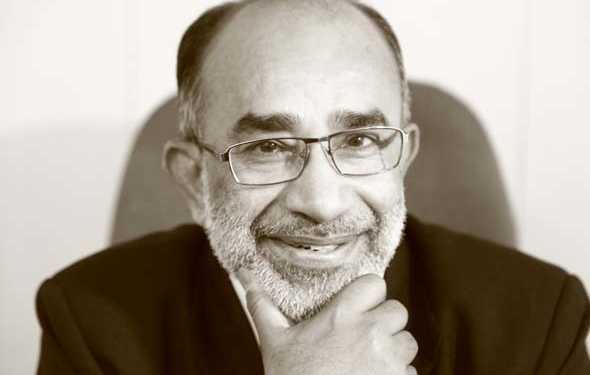Among the people joining Prime Minister Narendra Modi’s cabinet, there is one from Kerala, the state where BJP has expended lot of efforts in gaining respectable presence. As of now, in the state where Hindus, Muslims and Christians dominate almost equally, BJP has one MLA in the assembly and no MP in the Parliament. Alphons Kannanthanam, who is better known as an efficient administrator, rather than a strong politician, is therefore an interesting choice. His selection in the Union Council of Ministers, is reflective of the political acumen of Modi-Shah duo, who are keen to ensure that the Great Wall of Kerala, that has kept the state distant from BJP is breached by 2019.
Alphons Kannanthanam, the newly inducted Minister of state (Independent charge) of Tourism and Minister of state of Electronics and IT, other than his impressive credentials in various stints as an IAS, belongs to the Christian community in Kerala, which the BJP is attempting to woo to change its fortunes in the coastal state.
Alphons Kannanthanam was born in Kottayam in 1953. He completed his Masters in Economics and subsequently cracked the IAS. He is credited with making Kottayam town 100% literate in 1989. Subsequently, he moved to Delhi where he burnished his credentials as a Demolition man, responsible for bulldozing countless illegal structures which dominated the city as the Commissioner of Delhi Development Authority. He was recognized as a young global leader by Time magazine for his efforts. He resigned from IAS in 2006 and was elected as an MLA in Kerala with LDF’s support. Over time, he grew disenchanted with the Communists, quitting the legislative assembly and joining the BJP in 2011. He is also a member of the committee set up for preparing the National Education Policy. Alphons Kannanthanam’s entry into the Council of ministers is a laudable step as it enables the entry of a highly qualified administrator into the government and also provides representation to a hitherto unrepresented part of the country.
That having been said, the politics behind the move is not lost on anyone. BJP has been trying its level best to gain a foothold in the state where Hindus make up 54% of the population against 26% Muslims and 18% Christians.
Given the fact that historically Kerala has swung like a pendulum between Congress led UDF and Communist led LDF has meant that BJP has had nearly negligible presence in the state. In fact, the party came into prominence in the legislative assembly elections held last year, when it gathered 15.2% of the votes, an upward swing of nearly 8% and ended up having a legislator elected in Kerala for the first time in history. BJP has realized that unlike other states, it is impossible for it to gain a foothold in Kerala, banking solely on the consolidation of Hindu votes. Muslims have traditionally been averse to voting for the BJP but the party has had some success in gathering Christian votes. In Goa, for example, where nearly a quarter of the population is Christian, BJP has formed government several times.
Alphons Kannanthanam belongs to the Christian belt of Central Travancore. He is believed to have good connections with the Church and is being viewed as an asset by the BJP in two ways.
One, he is expected to further the agenda of efficient administration of Modi government and Second, he is expected to get the Church or a fraction of Christian community of his home state to back the BJP. That alone can result in a respectable performance for the party which is viewed as a North Indian, Hindi heartland party in large parts of the South. Were the BJP to perform well in Kerala, it would further burnish the credentials of the party as a pan-India party and would be huge morale booster for its cadres. While it is early days yet, Alphons Kannanthanam has his work cut out for him.























